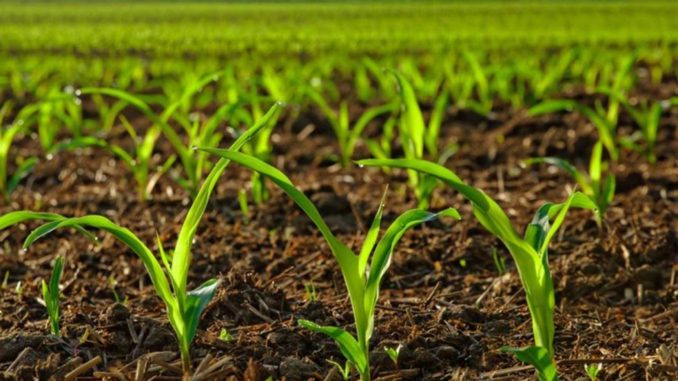
The boundless potential in Africa’s agricultural sector is gaining unprecedented rapid focus and investment. Africa’s agricultural output has tripled over the time frame of a decade, due to investment and upscaling of best practices. The tremendous amount of funds spent on R&D (research and development) in the areas of newer technology and upscaling of substantial farming has delivered success for citizens of the continent. The challenge remains how to sustain and triple the success rate of these transformations.
The metric system for measuring this remarkable progress is evident in both the GDP (gross domestic production) and GNP (Gross national production) of the African countries. Through the coercive methods and policies of diversification of the economy into other sectors and agriculture been the leading sectors with High ROI (Return on Investment) at the moment. Several factors are contributors to these progressive elements of growth in Africa such as; reaching out to untapped market, the growing and aging population which has led to an increase in both demand and supply, and the remittance of Africans in other countries also contributed immensely to this progress.
Despite this remarkable development the troubling side is still prevalent, the hunger situation in Africa is an endemic crisis and in a dire need of a sustainable solution. The precarity is becoming a condition built into a sustainable culture on the continent. Meticulous deconstruction of the previous state and augmentation of policy and best practices to nature an eco-system that supports development is essential for the aging youth and growing population. The concern regarding the aging and growing population of the continent, currently can be an added advantage, if the expansionary policies and mechanism are not excavated in the process. This will aid the increase of purchasing power which could imply a positive reaction to forces of demand that will inherently increase supply, ceteris paribus meaning “holding other things constant”. Africa has directed a tremendous amount of capital into revitalizing the agricultural sector as means of poverty reduction, democratic governance, and human security, the dividends of these grand gestures are cumulative, it requires time and consistency to come to fruition.
Building an ecosystem that nurtures both subsistence large-scale farming, and evolution of the agricultural markets requires a multifaceted holistic approach, that intersections between cross-cutting issues. The advantage of implementing these structures is that it lowers barriers to entry for other stakeholders, and it boasts the economy with market creation as compared to developed countries with challenges of market share capture rather than market creation. In order words, the value of the agricultural sector in Africa is growing exponentially with peak and trough, not in sight. The underdevelopment of Africa’s agricultural sector is a competitive advantage for the continent. According to a Joint report by the FAO (Food and Agriculture Organization) and ECA (Economic Commission for Africa) launched in Addis Ababa, that growing number of the population continues to suffer from malnutrition in comparison with other regional counterparts, the empirical evidence pontificates that this is unarguable true.
The level of youth participation in relations to economic productivity is slow-paced, and the level of poverty is alarmingly high. With the reduction of barriers into the logistics and supply in agriculture, it could lead to the creation of employment and increased productivity in the economy. The continent is on rapid progression towards infrastructural development, and increased investment in the logistics and supply chain of agriculture could lead to value creation and reaching undiscovered new markets within the continent. The result of this increased investment in the logistics and supply chain will lead to reaching more consumers in dire need and would reduce the inaccessibility to agricultural products, paving the way for the cross-cutting initiatives that will address malnutrition and food wastage.
The unceasing advancement of the agriculture sector in Africa faces implementation challenges, the top-down approach with policy implementation is confronted with implantations at the grassroots, the policy becomes watered down and non-inclusive if it gets to the grassroots. Subsistence farming is still preeminent in emerging countries especially Africa, hence robust and cut-through policy approach that reaches deep down into the grassroots level is vital for the continuity of sustainable subsistence farming. Africa continues to connect rapidly through several means such as the technology (internet) and transport networks. The opportunity for Africa to leverage on the rapid growing connection of internet users on the continent is imperative for the augmentation of the development in the agricultural sector. With the emergence of e-commerce, both large and subsistence farming can benefit from this, accessibility to larger new base.
A significant number of the consumers and marketers still live in the rural, with the rapid development of e-commerce, sooner rather later, markets and consumer will have a seamless interaction as never seen before. As e-commerce continues to progress the strain on logistics and supply becomes increasingly evident. There are no systems in places to address this duress in logistics and supply in emerging cities in Africa as of now. The intersectional approach between e-commerce, supply& logistics in agriculture, safety nets for subsistence and large-scale farmers, could be a profound solution to malnutrition, youth employment and poverty reduction in Africa. A carefully crafted and implemented top-down approach that work for subsistence and large-scale farming will be an effective poverty elevation mechanism.
END

Be the first to comment